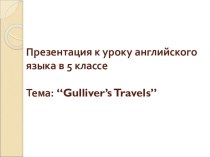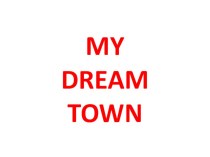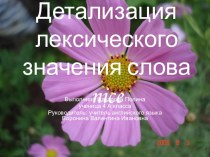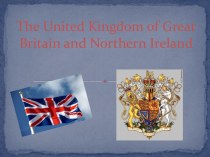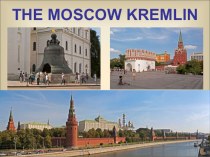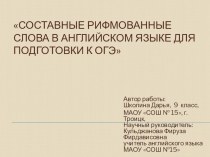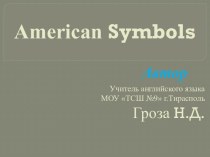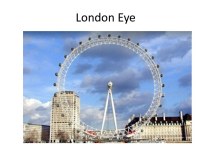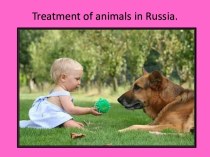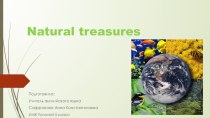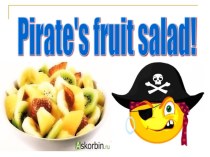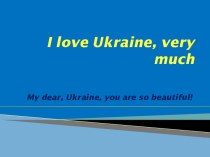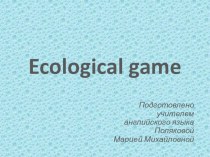- Главная
- Разное
- Бизнес и предпринимательство
- Образование
- Развлечения
- Государство
- Спорт
- Графика
- Культурология
- Еда и кулинария
- Лингвистика
- Религиоведение
- Черчение
- Физкультура
- ИЗО
- Психология
- Социология
- Английский язык
- Астрономия
- Алгебра
- Биология
- География
- Геометрия
- Детские презентации
- Информатика
- История
- Литература
- Маркетинг
- Математика
- Медицина
- Менеджмент
- Музыка
- МХК
- Немецкий язык
- ОБЖ
- Обществознание
- Окружающий мир
- Педагогика
- Русский язык
- Технология
- Физика
- Философия
- Химия
- Шаблоны, картинки для презентаций
- Экология
- Экономика
- Юриспруденция
Что такое findslide.org?
FindSlide.org - это сайт презентаций, докладов, шаблонов в формате PowerPoint.
Обратная связь
Email: Нажмите что бы посмотреть
Презентация на тему по английскому языку на тему : Welcome to my homeland!
Содержание
- 2. We live in Tula region. The biggest
- 3. The Tula KremlinThere is a big, beautiful
- 4. Tula SamovarsThe first samovar in the
- 5. Tula WeaponIn 1712, Peter I founded
- 6. Tula GingerbreadIn the 17th century, life was
- 7. Belousov’s ParkOriginally a city dump was on
- 8. Yasnaya PolyanaThere is famous Yasnaya Polyana
- 9. The Kulikovo FieldOn September 8
- 10. Скачать презентацию
- 11. Похожие презентации
We live in Tula region. The biggest city of Tula region is Tula. Tula is famous all over Russia because Tula is the samovar, gingerbread and weapon «capital» of Russia. Tula is a hero city.

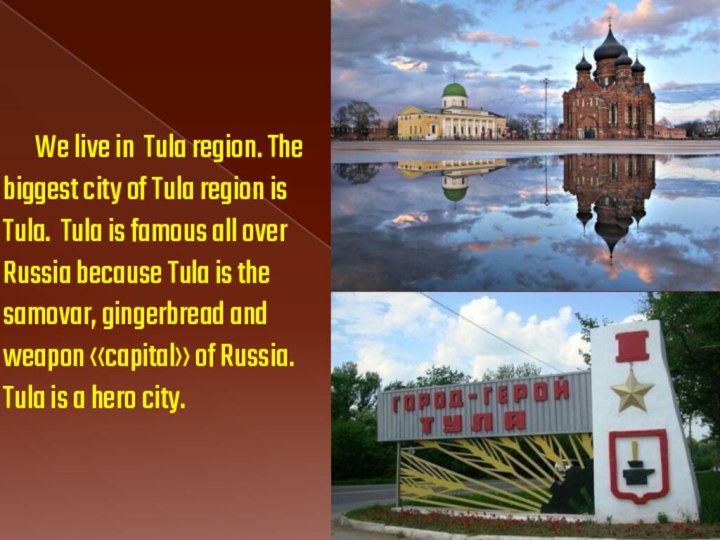
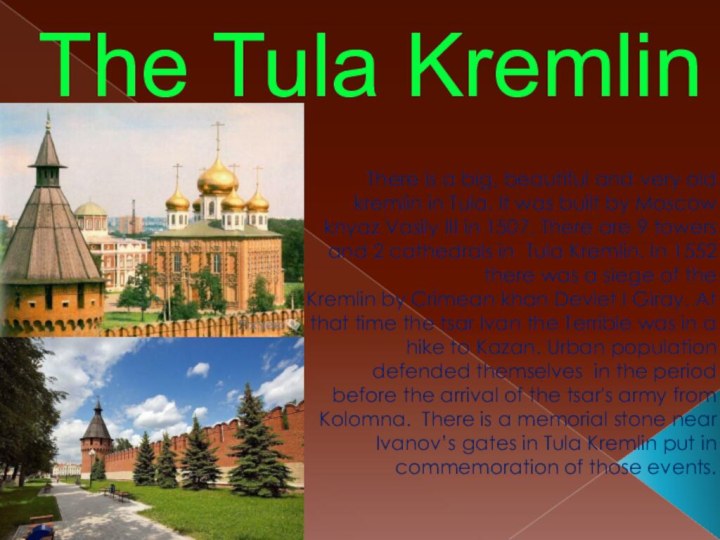
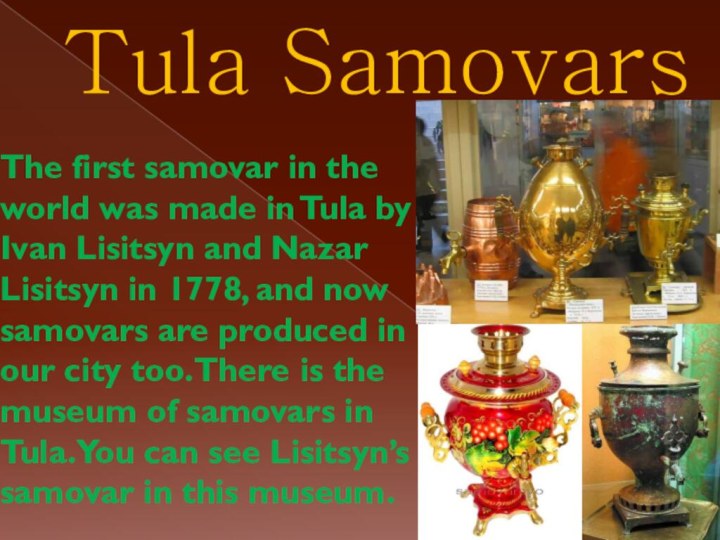
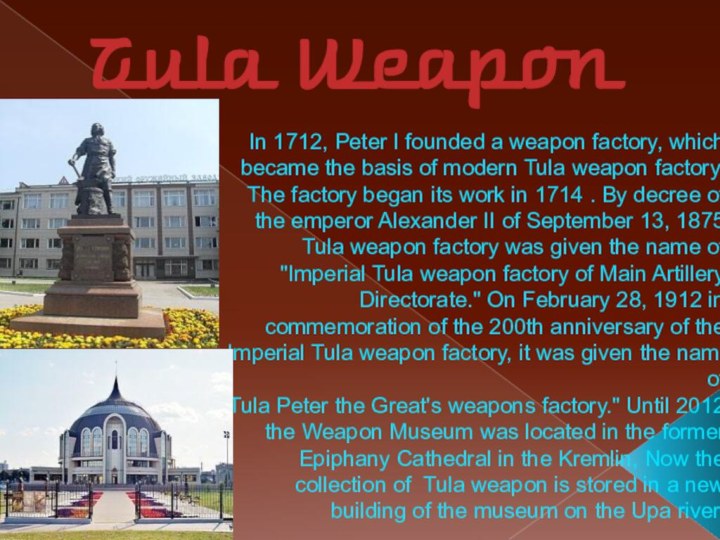
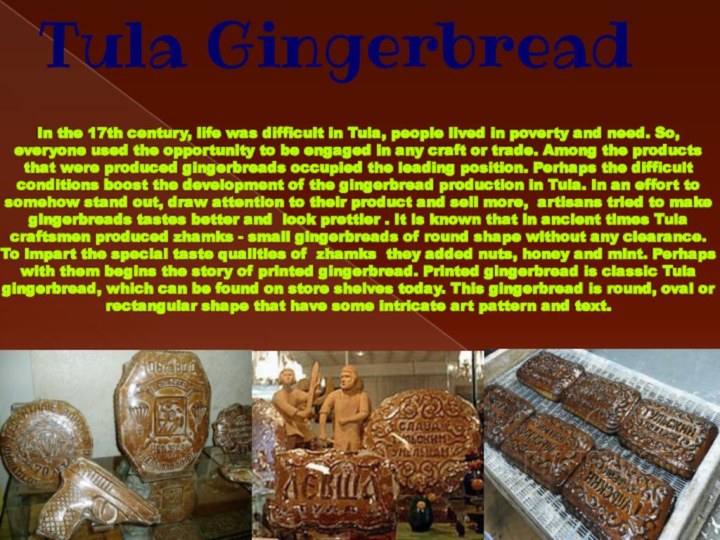
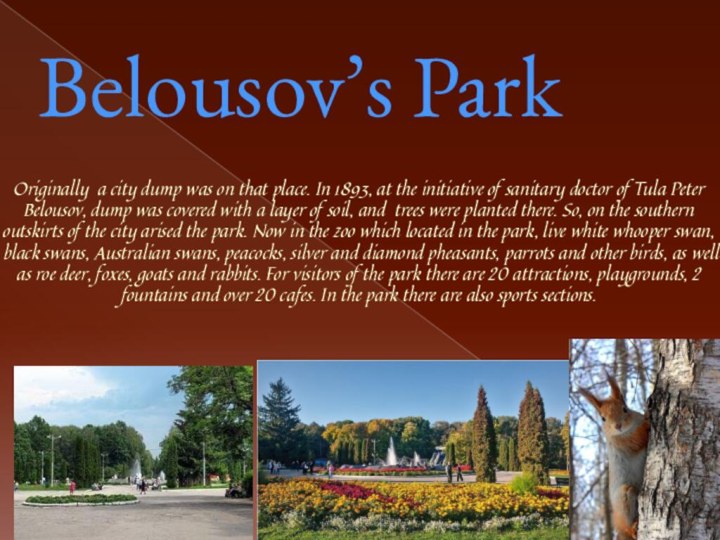
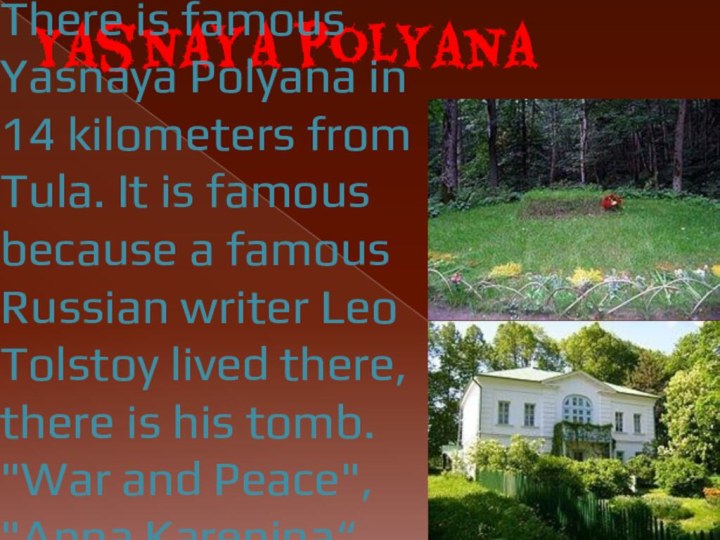
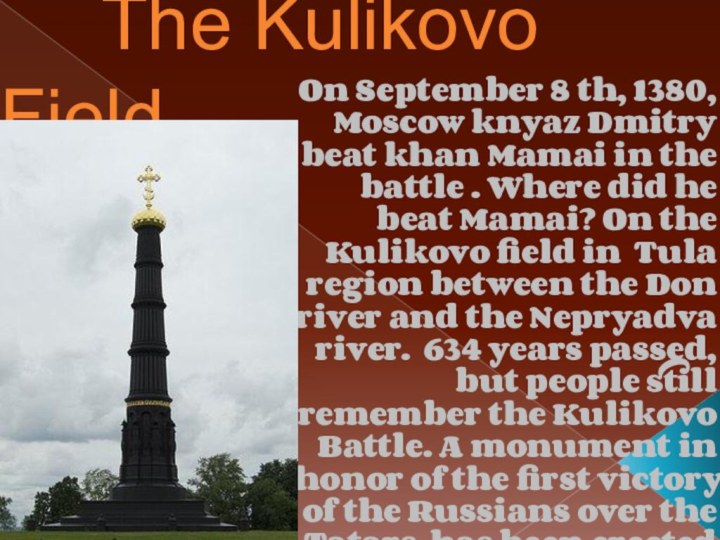
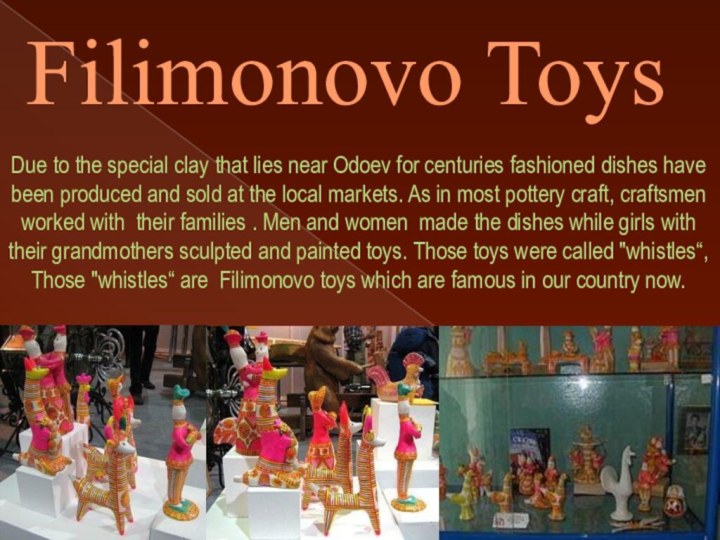
Слайд 3
The Tula Kremlin
There is a big, beautiful and
very old kremlin in Tula. It was built by
Moscow knyaz Vasily III in 1507. There are 9 towers and 2 cathedrals in Tula Kremlin. In 1552 there was a siege of theKremlin by Crimean khan Devlet I Giray. At that time the tsar Ivan the Terrible was in a hike to Kazan. Urban population defended themselves in the period before the arrival of the tsar's army from Kolomna. There is a memorial stone near Ivanov’s gates in Tula Kremlin put in commemoration of those events.
Слайд 4
Tula Samovars
The first samovar in the world
was made in Tula by Ivan Lisitsyn and Nazar
Lisitsyn in 1778, and now samovars are produced in our city too. There is the museum of samovars in Tula. You can see Lisitsyn’s samovar in this museum.
Слайд 5
Tula Weapon
In 1712, Peter I founded a
weapon factory, which became the basis of modern Tula
weapon factory. The factory began its work in 1714 . By decree of the emperor Alexander II of September 13, 1875 Tula weapon factory was given the name of "Imperial Tula weapon factory of Main Artillery Directorate." On February 28, 1912 in commemoration of the 200th anniversary of the Imperial Tula weapon factory, it was given the name of“Tula Peter the Great's weapons factory." Until 2012 the Weapon Museum was located in the former Epiphany Cathedral in the Kremlin, Now the collection of Tula weapon is stored in a new building of the museum on the Upa river.
